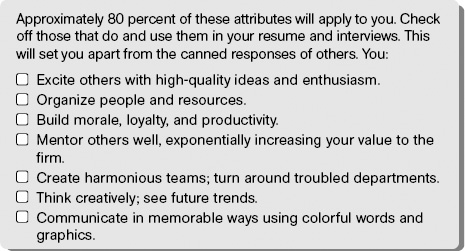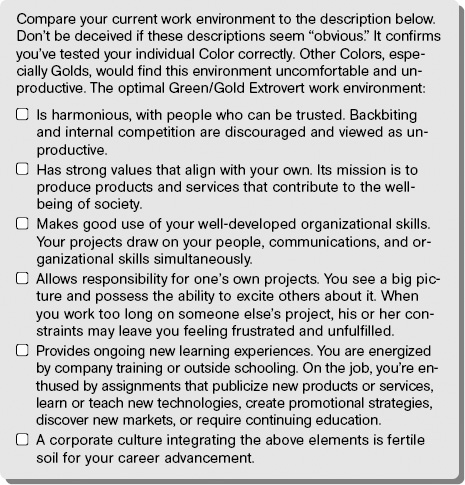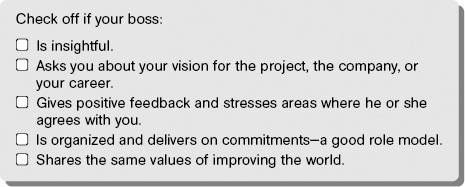

YOU’RE NOT ONLY A GREEN, you also have strong secondary characteristics of the Gold personality. And you have tested as a Color Q Extrovert, which means you recharge your batteries by being with others, rather than being alone. You are compassionate, persuasive, loyal, and have a talent for predicting future trends.
You are outgoing, sociable, warm, and articulate. Green/Gold Extroverts are gifted communicators with an unusual ability to influence. Those you admire receive your deep loyalty. In return, you expect equal appreciation. This can lead to frustration and disappointment.
You have an abundance of innate “emotional intelligence” and interact well with most Color types. You operate best in harmonious groups. Driven by intuition, foresight, and compassion, you excel at leading others to achieve their potential. You are exceptionally skilled at projecting the trends and pitfalls of the future.
People who are rude or bully others are a major irritant. You respond well to praise, but are easily hurt by criticism. This makes you appear touchy, as even the most well-intentioned criticism may fluster you. Actual conflict disturbs you (except when standing up to rude bullies, which you do with steely strength).
You are enthusiastic, with the energy to work on several projects at once. Decisive and often in a hurry, you can be more than a little impatient with anyone who slows you down. While it is your nature to be supportive, you can be both critical and confrontational when your standards are not being met.
Your interest in others is so strong that you run the risk of not giving enough time to yourself. In both personal and professional relationships, you make others feel valued and liked.
case study one
Financial Executive
Until December, 2005 Alexandra Lebenthal was President of Lebenthal and Company, a highly respected Wall Street institution. Formerly known as a conservative bond house, it expanded under Alexandra’s big-picture vision into mutual funds, estate planning, and insurance.
Alexandra earned her position after her grandmother Sayra, who founded and ran the firm for over 60 years, groomed her to take over. Despite an earlier interest in becoming an actress, at age 31 she became the youngest ever female president of a brokerage firm.
She got high marks from her Wall Street peers, particularly for the quality of her advertising and brand positioning. Green/Golds are creative abstract thinkers and gifted at positioning products and ideas. Alexandra says, “We came up with a commercial that announced, ‘I have a mission to make you a customer for life, and all I have to do is put your needs first.’” Treating clients like members of the family differentiated her firm’s client service and satisfied Alexandra’s Green side.
She enjoyed creating the vision for Lebenthal and Company and looks forward to starting her own financial services firm in 2007. Her natural Green/Gold ability to predict future trends serves her well. It was this ability that alerted Alexandra to offer new products that kept Lebenthal and Company strong, profitable, and ultimately marketable. They sold to Advest Group in 2001 for $25 million. In 2005 Merrill Lynch acquired Advest and laid the Lebenthal brand name to rest. Alexandra’s non-compete clause expired in mid-2006.
When heading a firm, she embodies the typical democratic management style of her Color. “I want the people who report to me to feel that they are a meaningful part of shaping the company,” she says, “and shaping me as a leader.” Today she has teamed up with Israel Discount Bank to open a new municipal bond firm and continues to be a guiding hand for investors.
A people-centered, idealistic vision drives your enthusiastic style. You respect the needs and opinions of staff at all levels, influencing with persuasion rather than control. Consensus and cooperation are your goals. You provide your people sensitive and appropriate support through personal difficulties.
Your Gold side introduces structure and organization and initiates action. You are usually upbeat, accepting setbacks as new challenges rather than defeats.
If a team is stalled by interpersonal conflict, you are the bridge builder. Others understand you merely want to achieve stated objectives. Rather than being dictatorial, you energize the team with enthusiasm and a warm sense of humor. You inspire former combatants to their best combined efforts. As focused and results-oriented as you are, it’s rare that your team misses a deadline.
Look at Figure 6–1 for a list of your natural work-related strengths. Now see how another Green/Gold Extrovert uses his strengths in a very different field.
Alexandra and Terry each gravitated to environments where they have control of products or services that contribute in some way to the well-being of society. These are key elements of Green/Gold Extrovert satisfaction.
When a job offer is made, leverage as much as you can from the list in Figure 6–2 on page 33.
The WORST type of work culture for an Extroverted Green/Gold is tense, overly competitive, and highly political. It is secretive about critical information, rewarding power plays over productivity. The atmosphere is impersonal among management, staff, and co-workers. The company compromises your core values; it exploits both its workers and its customers.
While Green/Gold Extroverts can progress in such corporate cultures, your interpersonal talents usually must remain low key in order to survive.
Figure 6–1 Natural Work-Related Strengths

Productivity and accomplishment are stunted, and career achievements become an uphill climb.
case study two
Human Resource Director
Terry McGuinness is Managing Director of an international investment management conglomerate. He manages 98 human resource professionals worldwide, overseeing a broad range of services from hiring to employee relations.
He sees his greatest accomplishment as having led the implementation of a new organizational structure to better align Human Resources services with the goals of the company’s different business groups. Having key staff members report both to him and the business executives makes these HR executives more responsive to the business issues. This, in turn, increases their value to the organization, bringing them more respect, responsibility, and compensation. Terry also took the results of an employee survey and made those criteria part of the annual performance reviews and bonus allocations of management, thereby improving overall morale and productivity.
Working on global issues is also of high interest to Greens, who easily understand the big picture. Dealing with people in many countries enables Terry to stay on top of international trends, customs, and the most effective HR practices.
Known for his facilitation skills, he is usually called on to run meetings at the most senior level. He introduces and runs sophisticated training programs for all levels of managers, enabling him to experiment with the latest in adult learning theories.
When it is time to let people go, he also is known for his skill at walking terminated executives through their situations and explaining the benefits of their severance packages in a positive way. He stays close to them and monitors their cases until they are hired by another company. Many actually return to thank him once they find new jobs!
Even a great job can be frustrating under the wrong boss; a mediocre job under a great boss is pretty hard to leave. Green/Golds get on especially well with other Greens. But bosses of the Color types who possess the skills in Figure 6–3 on page 34 also can be good mentors.
As Alexandra’s and Terry’s stories illustrate, you have deep personal values and care about the needs of others (on the Green side) and value organization (on the Gold side).
Please note that not all the following careers will appeal to you, but recognize that each, in some way, draws on the strengths of your style and appeals to a significant number of your Color group. This is not a comprehensive list, but it will show underlying patterns of preference. If unlisted careers offer similar patterns, your chances of success increase. Copy in parentheses highlights the Color style characteristics that create success.
In addition, two codes indicate those jobs that are currently predicted to have an above-average salary and growth potential. This information is based on the continuously revised data provided by the U.S. Department of Labor and Bureau of Labor Statistics available on the O*NET website, http://online.onetcenter.org/.
Figure 6–2 The Ideal Green/Gold Extrovert Work Environment

Bold indicates that the career is considered to be among the top 100 best-paying jobs based on the average or median salary paid to individuals with five years of experience. Excluded are jobs where salary statistics are not available, such as “business owner,” or not indicative such as “actor.”)
Italics identifies the jobs that are predicted to benefit from an above-average growth rate over the next several years.
Bold and italics indicates jobs that will benefit from both higher pay and high growth potential.
Note there are successful people of all Color styles in all occupations. In nonideal jobs you can still shine by creating your own niche.
Figure 6–3 The Green/Gold Extrovert’s Ideal Boss

advertising and promotions manager ♦ art director ♦ artist ♦ desktop publisher ♦ book publishing professional ♦ corporate communication director ♦ exhibit designer ♦ film editor/producer ♦ graphic artist/designer ♦ interior decorator ♦ Internet marketing manager ♦ literary agent ♦ media planner ♦ merchandise displayer ♦ multimedia specialist ♦ museum director ♦ public relations director/specialist ♦ set/costume/exhibit designer ♦ TV/stage producer ♦ website editor/art director (involvement with media, draws on superior language skills, communication through graphic presentation, manages the corporate image).
account executive ♦ consultative salesperson/manager ♦ corporate communications director ♦ diversity manager ♦ human resources manager ♦ industrial psychologist ♦ marketing specialist (ideas/services) ♦ group/unit manager ♦ organizational development consultant ♦ employment interviewer ♦ training and development specialist (fosters relationship essential for your company, develop colleagues, use communication and facilitation skills).
educational administrator ♦ guidance counselor ♦ instructional coordinator ♦ school psychologist/teacher/professor [all levels—art, drama, English, humanities, languages, special education] ♦ school social worker (helping others reach their potential, patient one-on-one influencing).
alternative health care practitioner ♦ clinical psychologist/psychiatrist ♦ general practitioner ♦ home health aide ♦ internist/medical researcher ♦ optometrist ♦ pediatrician ♦ physician assistant ♦ speech pathologist ♦ therapist [marriage, occupational, substance abuse] (environment congruent with values, insights into others, see new ways to solve problems, patient one-on-one influencing).
lawyer [children, communication & media, domestic relations, environmental, intellectual property, trust & estates] ♦ mediator (understanding of human motivation).
coach [business, life] ♦ counselor [career, child welfare, outplacement, pastoral, substance abuse] ♦ fundraiser/institutional solicitor ♦ philanthropic director/consultant ♦ religious leader/educator ♦ senior day care director ♦ social worker/community services manager (need for good organizational skills, goal setting, and using all resources, helping people who need it, work congruent with your values, improving the world).
case study three
When a Career Isn’t Working
Buddy Coleman (a composite of the author’s clients) sold insurance for fifteen years for a leading company. He really enjoyed dealing with customers and took pride that he was helping them shape their futures in positive ways.
After fifteen years, this was no longer enough. The amount of paperwork had increased over the years, something that Green/Gold Extroverts find suffocating. Dealing with concrete events and practical rules-based questions had burned him out. He craved something (anything!) that would engage his Green/Gold’s preferred focus on the big picture.
At a meeting of his professional insurance sales organization he was intrigued to hear that the long-time director was retiring, and a search was on to replace her. Buddy immediately expressed his interest to an attending board member and was strongly encouraged to submit a resume. Today, he directs the efforts of twelve volunteers and flexes his Green/Gold creativity writing a monthly Future Trends column for the organization’s glossy newsletter. He has increased the number of membership events by 50 percent and attends each one personally, providing the people contact this Green/Gold always enjoyed.
Green/Gold Extroverts have a unique set of potential work-related blind spots. Some below you have, others you don’t. Tone down a blind spot by focusing on it, then choose more productive actions and make them habits. (Suggestions for doing so are in parentheses below.) You:
♦ Avoid conflicts and confrontations. (You take conflict and criticism very personally and protect yourself by avoidance. Instead, face it. Build a thicker skin by repeated exposure, on your terms.)
♦ Tend not to recognize underperforming workers or manipulative friends/relatives. (Don’t shove aside that little alarm bell inside. Memorize this phrase and speak up immediately: “I see you [are/are not] doing X. I want to say something now so you don’t think I’m OK with this going forward.”)
♦ Base important decisions too much on likes and dislikes and not enough on facts, figures, and research. (With your next important decision, guide yourself as usual by your likes and dislikes. Then force yourself to do some research—just a little! Assemble a few facts and figures. See what happens when you consider this new input.)
♦ Can irritate others by being moralistic. (If you’re pontificating, stop yourself with this phrase: “And now, I’ll get off my soapbox! But do you agree? How would you handle it?”)
Green/Gold Extroverts have outstanding people skills. Many interviewers are Greens, with whom you’ll feel an immediate rapport. But with interviewers of other Colors, you need to rehearse different communications styles.
Your natural strengths easily allow you to:
♦ Organize and execute a comprehensive job search campaign.
♦ Network widely to get leads.
♦ Impress your interviewer with your verbal skills and confidence.
♦ Project your past experience into new fields or functions.
In order to avoid your blind spots, you need to:
♦ Thoroughly check out the facts about a position rather than rely on intuition.
♦ Slow down in making decisions until there has been sufficient reflection.
♦ Not take rejection personally.
♦ Not be too accommodating in discussing your compensation package. Treat the process as a chess game to increase both respect and compensation.
You’ll feel immediate rapport with an interviewer whose Color is close to your own. However, if your interviewer seems to have a significantly different style, use the suggestions in parentheses.
In following your natural style, you will:
♦ Express yourself with warmth and passion. (Tone it down with a cooler type of interviewer.)
♦ Stress the big picture first and place less emphasis on the details of your experience and goals. (Some interviewers prefer sequential or chronological presentations. Let them lead; note if the interviewer is more concrete and practical. If so, avoid brainstorming and metaphoric language.)
♦ Try to personalize the relationship as quickly as possible. (If the interviewer greets you warmly and has many personal photos around his or her office, go with your natural style. If you are greeted coolly and the interviewer seem analyzing and detached, be formal. Focus ONLY on answering the questions succinctly.)
♦ Avoid subjects that cause conflict. (Rehearse difficult questions ahead of time, such as: Why did you leave your last job? What are your weaknesses? What would your former boss say about you? Do you have budgeting skills?)
♦ Have trouble negotiating salary and other financial issues. (Research comparable pay and standard benefits. If you have a strong resume, don’t hesitate to ask for more, saying, “With my qualifications, I’m expecting X.” If they still lowball you, leave. You’ll respect yourself, and you may get a counter offer.)
♦ Think on your feet and respond quickly; talk more than listen. (Active listening is essential to understand the interviewer’s priorities. Prepare a list of questions important to you, and listen closely to the answers.)
Okay, go do something family-oriented now. Later, check out Chapter 20, Golds Overall, first, then carefully read Chapter 4, Tour of the Prism Company, to learn about the strengths of other Colors. Like all Colors, you need the strengths of others, and you can put them to work for you if you know where to look and how to ask. Read Chapter 25 to learn how to recognize the Colors who can best assist you.